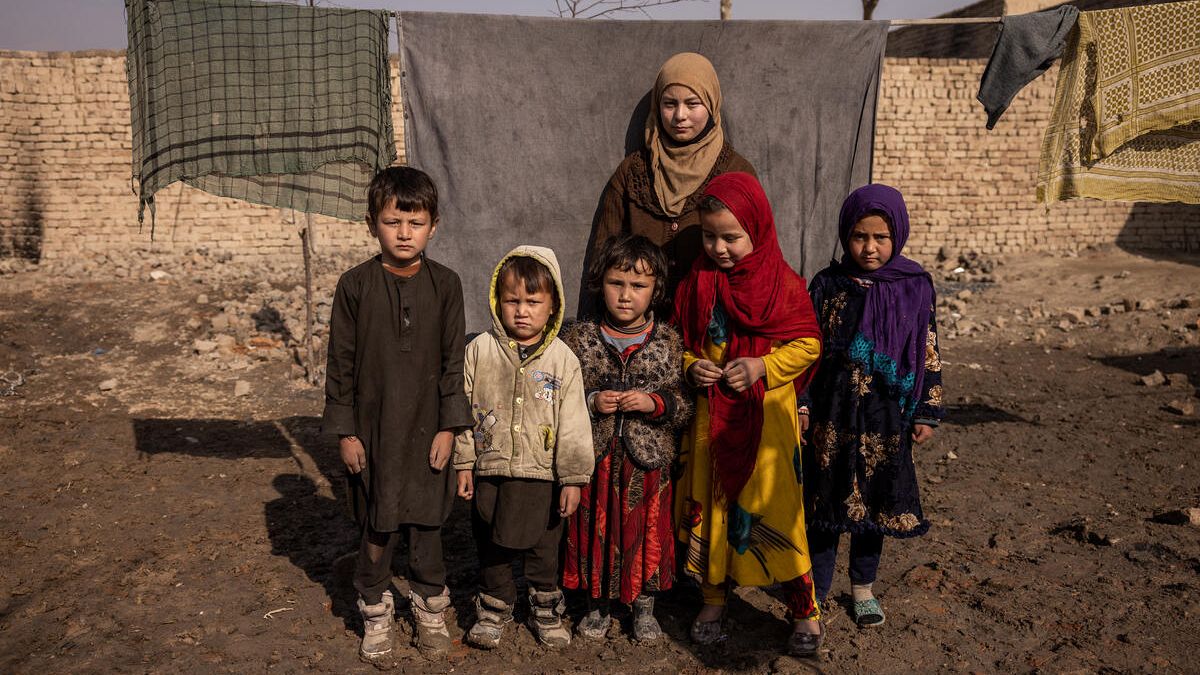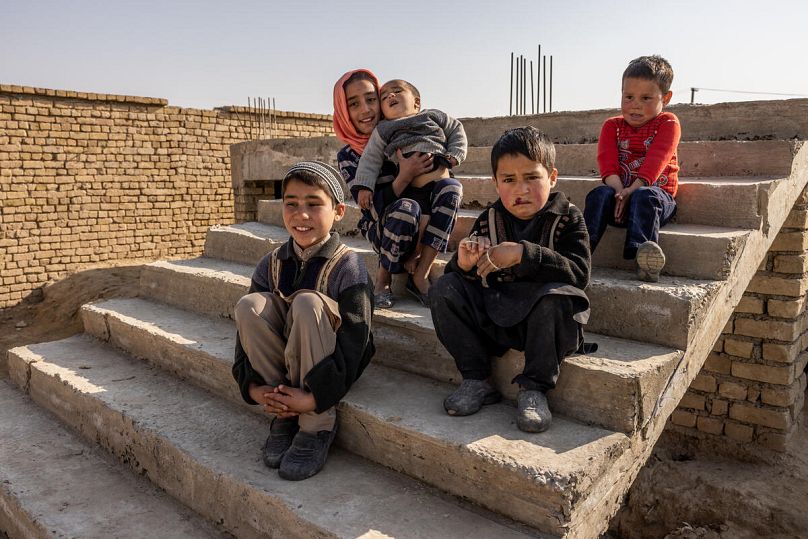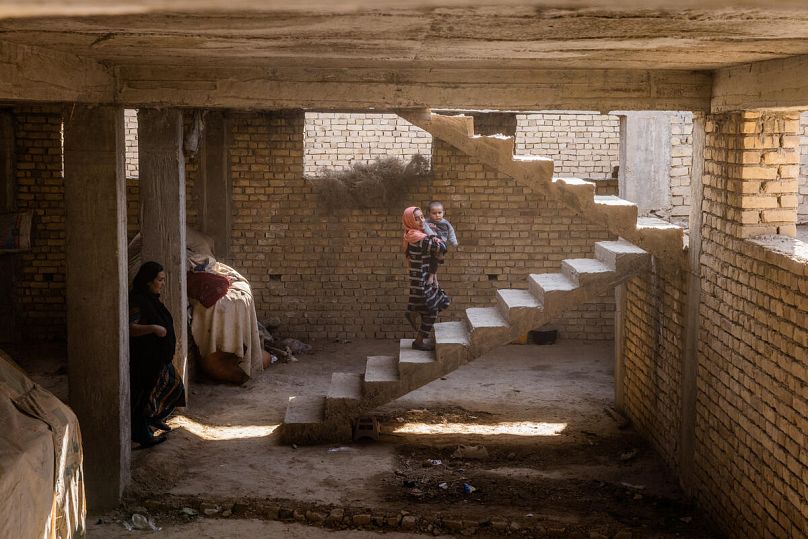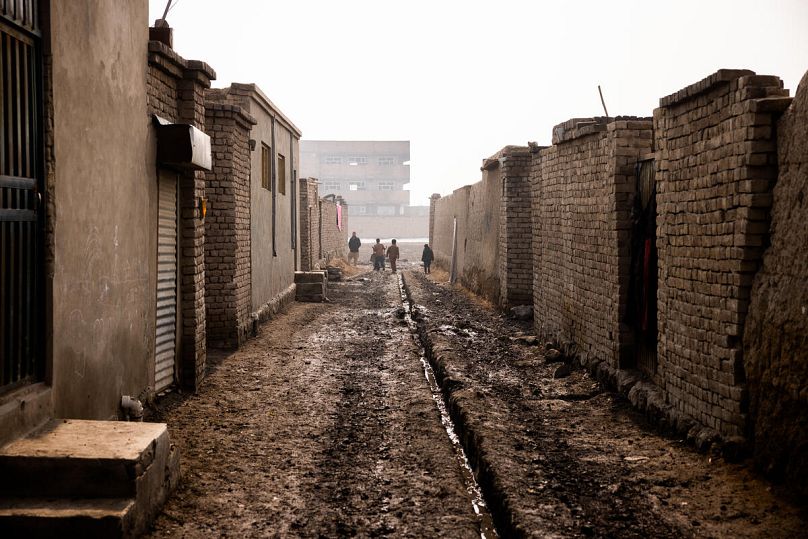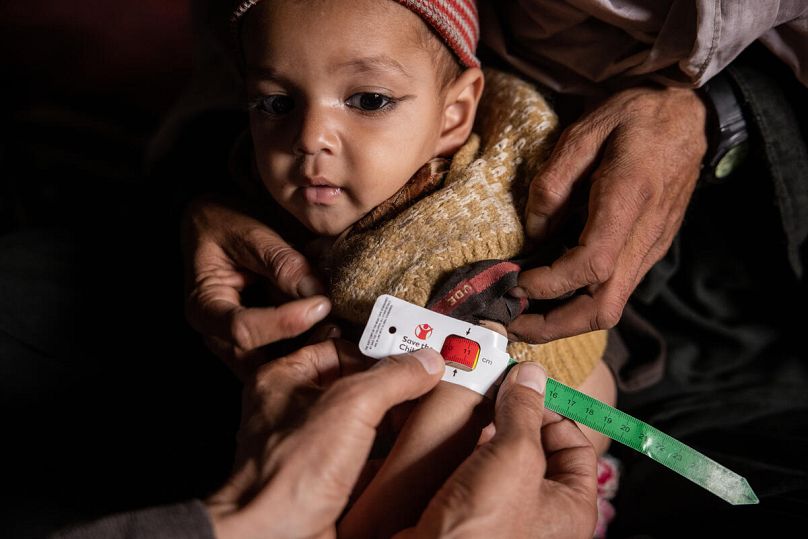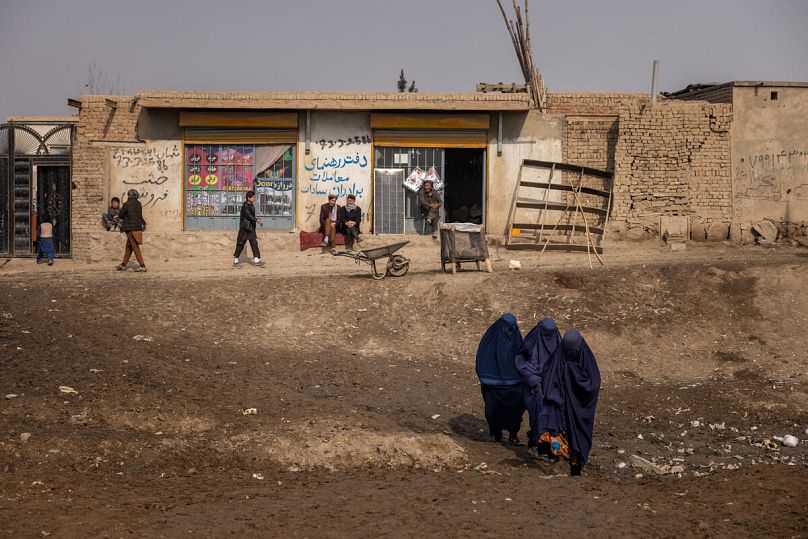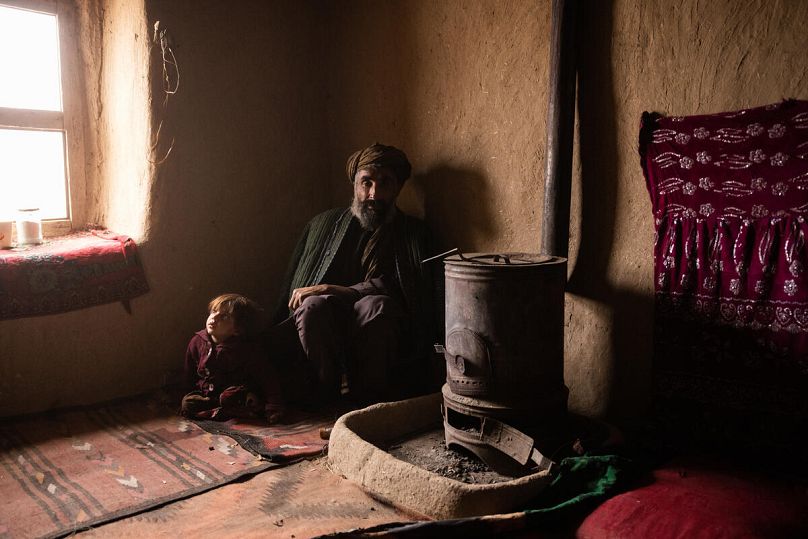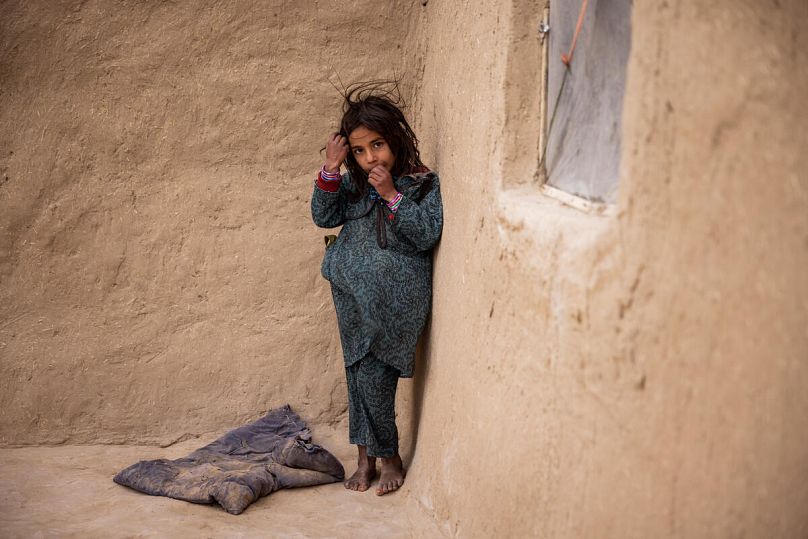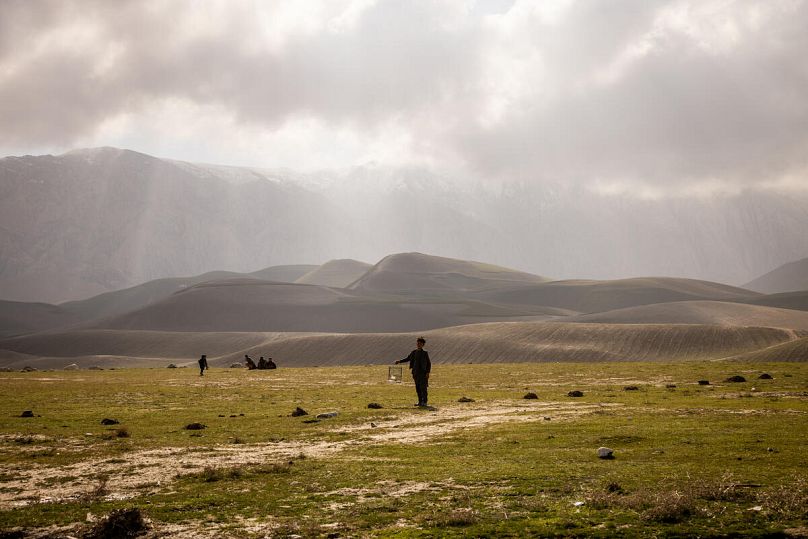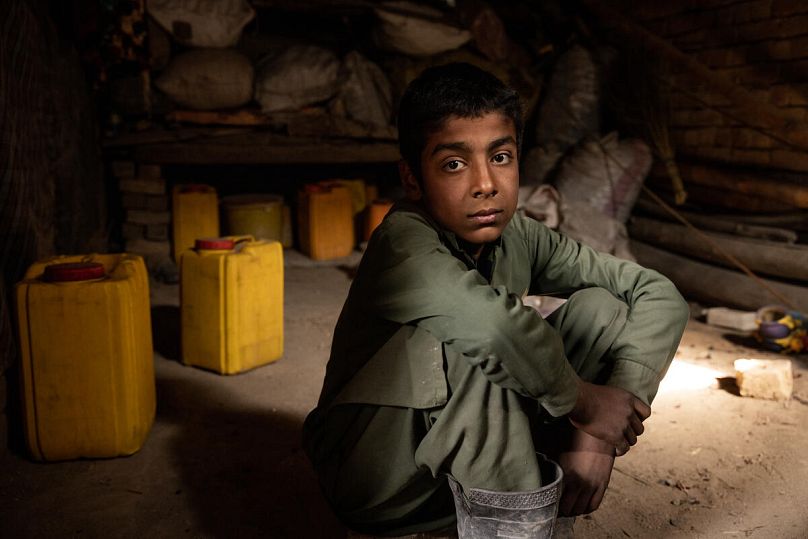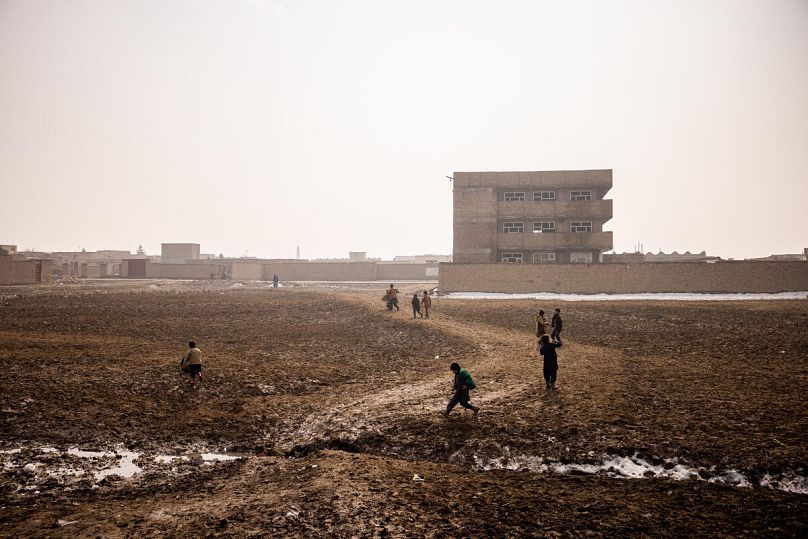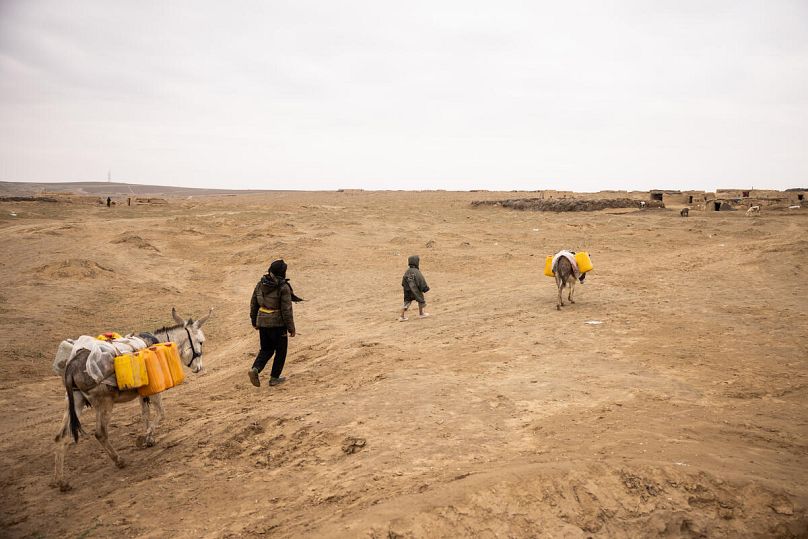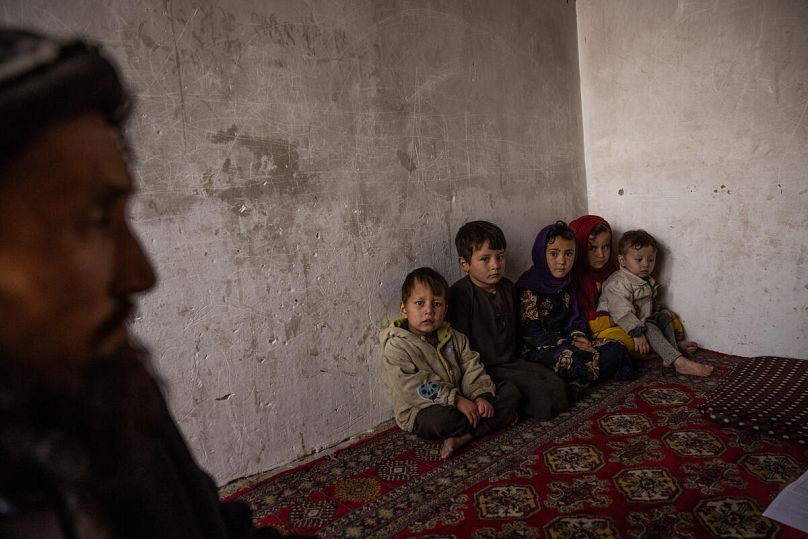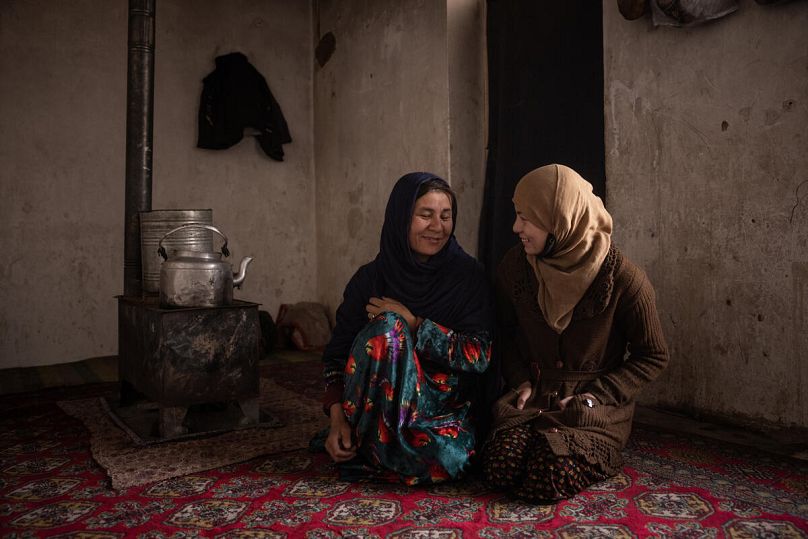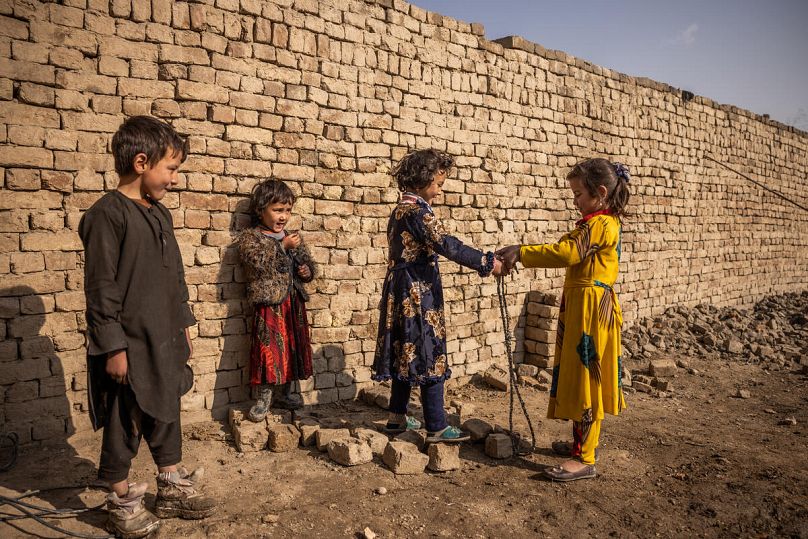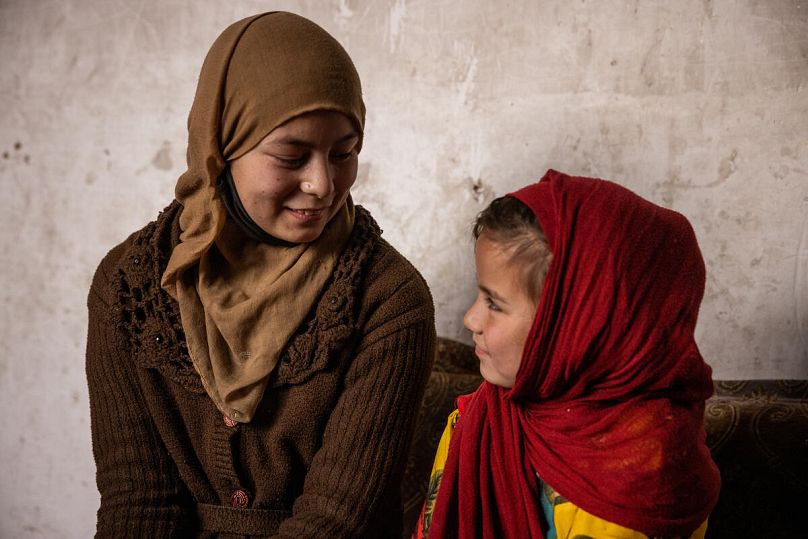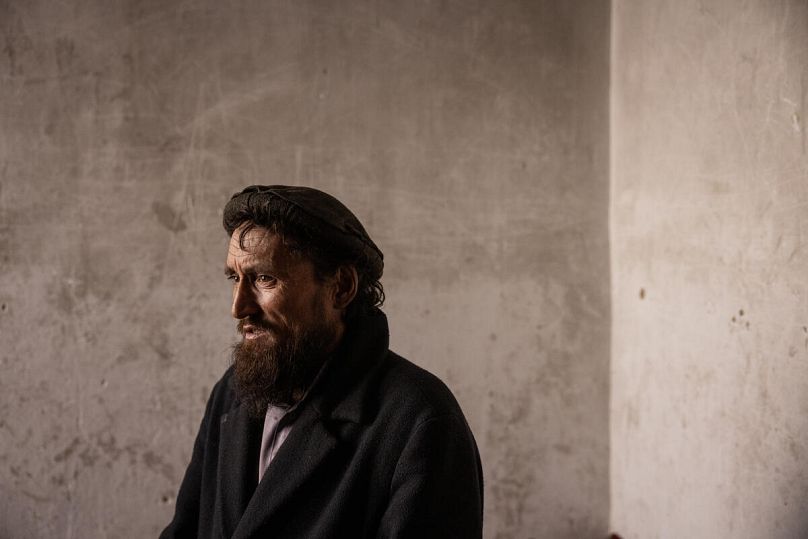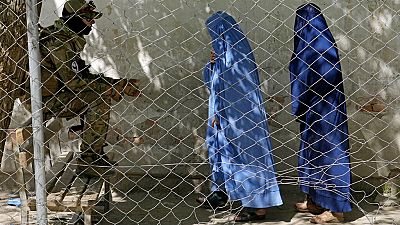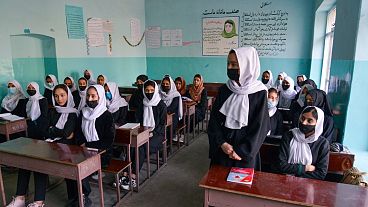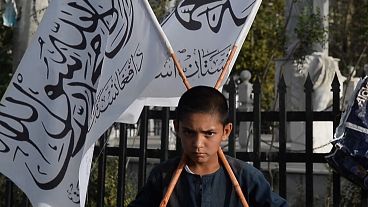Afghanistan crisis: Pictures show children's fight for survival six months since Taliban takeover
Six months since the Taliban seized Kabul, a humanitarian crisis has developed in Afghanistan that has devastated the lives of children across the country, says Save the Children.
Six months since the Taliban takeover of Afghanistan, a humanitarian crisis has developed that has devastated the lives of children across the country, say Save the Children.
The NGO says its newly released pictures tell the story of children fighting for survival, as families make impossible decisions about which child they can afford to feed and which children need to work on the streets to put food on the table.
The pictures -- by photographer Jim Huylebroek -- form part of a series called Children on the Edge of Life and give a glimpse into Afghanistan’s worst food crisis since records began. Almost five million children stand on the brink of starvation due to the devastation caused by the conflict and subsequent economic collapse in Afghanistan, says the NGO. The situation has been made even worse by drought.
Meanwhile, the International Rescue Committee (IRC) says 97% of the population is expected to be living below the poverty line by the second half of 2022.
If the country's humanitarian crisis is left unaddressed it could lead to more deaths than 20 years of war, claims the IRC.
In the north of the country, 12-year-old Laalah lives with her mother and four siblings in a tent in the basement of a half-constructed building.
Her father Maalek struggles to find work as a labourer and sometimes has no choice but to send his sons to find rubbish to sell or burn to keep their home warm.
“Whenever kids are free from school they go out and collect rubbish,” he said. “They go onto the streets and collect and sell cans so they can afford their school expenses or food.
“My dream is to find somewhere, to build a place for them. To be able to build a house to live in so that they can stop being homeless like this.”
For her part, Laalah holds out hope that she will be able to go to school in the future.
“I want to go to school,” she said. “To be either a teacher or doctor. I want our living to be good, to eat good food.”
But it’s not just Afghan schools that have suffered from the withdrawal of aid and the freezing of financial assets. Hospitals across the country have been brought to the brink of collapse due to the lack of funding for health workers and the absence of critical medicine for sick children, according to Save the Children.
When medicines are available, they are often too expensive for families to afford – an issue exacerbated by their inability to provide food for their children, adds the NGO.
In Kabul, 12-year-old Arzoo and her family only eat bread most days, because her father hasn’t been able to work for months and can’t afford anything else. To make matters worse, her parents and 18-month-old brother are ill, but they can’t afford to see a doctor.
Arzoo’s mother Ferisha said people in Afghanistan are desperate for food, but “there is nothing”. Her main aim is that her children can get out of the crisis.
“My hope is that they study and make progress,” she said. “One can only have this hope.”


